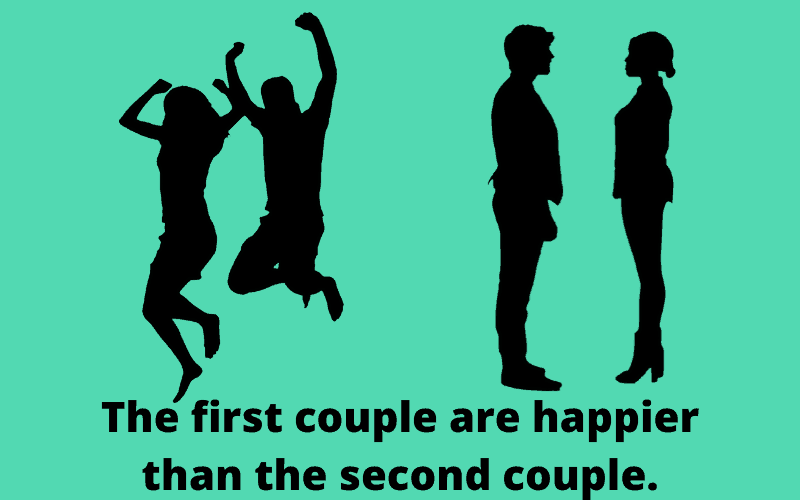Exceptions to the rules
There are regular adjectives such as:
Young (younger)
Old (older)
Fast (faster)
And there are irregular adjectives too, such as:
Good / Well – better
Bad / Badly – worse
Far – further
In these cases we don’t add the -er ending or the word more. Read these examples:
She is better at swimming than me.
The movie is better than the book
My house is further than your house.
I feel worse than yesterday.
In some cases we can use the ending -er or more with two syllable adjectives especially with the following: clever, narrow, quiet, simple, shallow.
She’s cleverer.
She’s more clever.
In this case both options are correct.
Modifiers:
We can add words like: much, a lot, far (=a lot), a little, a bit, slightly to modify the amount.
I feel much better today.
Are you a bit better today?
This book is a bit more expensive than the other.
Now that she changed her job she’s a lot happier.
Other uses for comparative adjectives in English:
Better and better
We repeat the comparatives to express that something changes continuously.
If you study English every day you’ll get better and better.
Renting is getting more and more expensive these days.
The …. The …
You can use the definite article “the” before an adjective to say that one thing depends on another.
The sooner we leave the better.
The further you go out of the city the cheaper it gets.
The longer we wait the later we’ll be.
The … The ….
You can add expressions with two comparative adjectives. Such as:
The sooner the better. (= as soon as possible the better)
The younger, the better. ( = as young as possible the better)
Older or elder?
Older refers to the comparative of old, we use it only when we compare.
My best friend is older than me.
Elder is used when you talk about people in your family. You can also use older.
My elder sister works in the pharmacy.
Do you have an elder brother?
Attention: we do not say “My sister is elder than me”
O oposto de comparativos (less)
Nós usamos menos como o oposto de mais. Os adjetivos mudarão da mesma forma que antes, acrescentando -er ou menos em vez de mais.
Exemplos:
You are working less harder than I am.
The movie is less interesting.
You’re less busy than I am.
Remember to add the word less in all the sentences you make.
What is the comparative adjective of lazy?
Lazy ends in a Y so if you remember the rules from above you will know that the comparative adjective of lazy is lazier.





